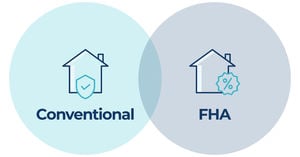The Complete Guide to Home Loans: Understanding Your Options and How to Navigate the Process
Introduction:
When it comes to buying a home, securing the right financing is as crucial as finding the perfect property. A home loan, or mortgage, is not just a means to buy a home—it’s a long-term financial commitment that requires careful consideration. This guide is designed to demystify the process and types of home loans available, helping you make informed decisions every step of the way.

Section 1: What is a Home Loan?
A home loan, commonly referred to as a mortgage, is a sum of money borrowed from a financial institution to purchase a house. It is secured by the property itself and requires regular payments over a period until fully repaid. The loan consists of the principal (the amount borrowed) and the interest (the cost of borrowing money).
Section 2: Types of Home Loans
Terms:
- Fixed-Rate Mortgages: These loans have a constant interest rate throughout the term, typically available in 15, 20, or 30-year periods. They offer stability in monthly payments and are ideal for those who plan to stay in their home long-term.
- Adjustable-Rate Mortgages (ARMs): ARMs start with a fixed interest rate for a certain period and then adjust annually. They may be suitable for those expecting to move or refinance before the rate adjusts.
Types:
- FHA Loans: Backed by the Federal Housing Administration, these loans are great for first-time homebuyers due to lower down payment and credit score requirements.
- VA Loans: Available to veterans, active-duty service members, and some members of the National Guard and Reserves, VA loans offer competitive rates and do not require a down payment.
- USDA Loans: Aimed at rural homebuyers and requiring no down payment, these loans are ideal for qualifying suburban and rural residents.
- Jumbo Loans: For homes that exceed federal loan limits, jumbo loans are necessary. They require stronger credit scores and larger down payments.

Section 3: Understanding Loan Terms and Conditions
- Interest Rates: Your loan’s interest rate will significantly impact your monthly payment and the total cost over the life of the loan.
- Amortization: This term refers to the schedule by which you’ll repay the loan. Early payments are primarily interest, while later payments are mostly principal.
- Loan Term: The length of your loan affects both your interest rate and monthly payment. Shorter terms generally have lower rates but higher monthly payments.
- Fees and Penalties: Be aware of origination fees, appraisal fees, and any penalties for early repayment, which can affect the overall cost of your loan.
Section 4: How to Qualify for a Home Loan
Credit Score: A higher credit score can qualify you for better interest rates and loan terms. Most lenders require a score of at least 620 for conventional loans.
Income and Employment: Lenders will verify your income and employment to ensure you have the means to make monthly payments.
Debt-to-Income Ratio: This ratio measures your total monthly debt against your gross monthly income, with most lenders preferring a ratio under 36%.
Down Payment: Depending on the loan type, you may need anywhere from 0% to 20% of the home’s purchase price as a down payment.

Section 5: The Home Loan Application Process
Pre-Approval vs. Pre-Qualification: Pre-qualification gives you an estimate of what you might borrow, while pre-approval involves a more thorough check and signifies a lender’s commitment to lend.
Application Documentation: Prepare to provide tax returns, bank statements, and other financial documents.
The Role of a Mortgage Broker: A broker can help compare offers and negotiate terms on your behalf.

Section 6: Tips for a Smooth Loan Approval Process
Improve Your Credit Score: Pay down debts and avoid new credit lines before applying.
Save for a Larger Down Payment: This can reduce your monthly payments and negate the need for private mortgage insurance.
Avoid New Debt: New debt can negatively impact your debt-to-income ratio and your credit score.

Section 7: Closing on Your Home Loan
Final Approval: This comes after the underwriting process is complete.
Closing Costs: Expect to pay 2-5% of the home’s purchase price in closing costs.
What to Expect on Closing Day: You’ll sign the mortgage agreement and take ownership of the property.
Understanding the ins and outs of home loans can make the home buying process less daunting. By getting familiar with the types of loans available, how they work, and what is required, you can better prepare yourself to make smart, informed decisions.
Ready to explore your home loan options? Contact us today to get personalized advice and start your journey to homeownership with confidence!



